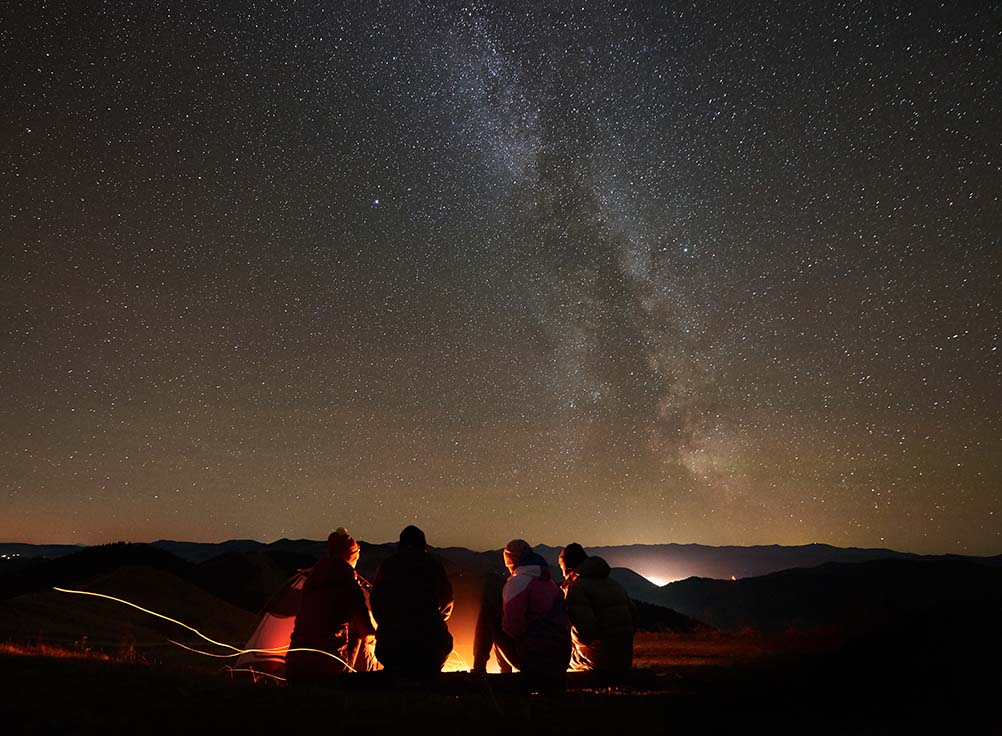Your cart is empty
Lottery 16 September 2022
Hitting the Jackpot vs being Hit by a Meteorite?
Meteorite Strikes - What are the Odds?

Table of contents:
- METEORITE STRIKE VS LOTTERY ODDS
- METEORITE PROBABILITY 1: YOUR HOUSE
- METEORITE PROBABILITY 2: SURFACE AREA
- NASA'S CALCULATIONS
- PAST METEORITE EVENTS
- DON'T WORRY, BE HAPPY!
METEORITE STRIKE ODDS VS LOTTERY ODDS
When comparing the odds of being hit by a meteorite to the odds of winning a lottery, we must first consider which lottery to compare to in the first place.
Lottoland offers a wide range of international lotteries to bet on, with the odds varing greatly between them.
One of the lotteries which offers the most favourable odds, along with a minimum jackpot of £1.7 million, is the Irish Lotto.
The Irish Lotto is one of the favourite lottos available to bet on with Lottoland, with odds of 1 in 10,737,573.
By no means is it easy to win the Irish Lotto, or any lottery for that matter, the odds are certainly stacked against you. However, in comparision to other world lotteries, such as PowerBall, with odds of 1 in 292,201,338, the Irish Lotto odds are far more favourable. Although, with PowerBall you're betting on a lottery with a guaranteed jackpot of $20 million (approximately £17.4 million) and a record jackpot of an mind-blowing $1.586 billion (approximately £1.382 billion), yes, that's billion!
How do these odds compare to the unbelievable event of being hit by a meteorite? Let’s find out!
METEORITE HIT PROBABILITY 1: YOUR HOUSE
This calculation is the simplest of the lot. It assumes that about 500 meteorites strike the Earth each year on average.
If we consider the odds of an average house of size 2500 sq ft being hit, out of the whole wide expanse of 5.49 quadrillion sq ft, a targeted house-collision by any of the 500 meteorites in a year, comes to 1 in 2,196,267,379,587 any year.
For an average life-span of 80 years and 40,000 meteorites, that is still less at 1 in 176 trillion!
This skims over the issue of whether or not you are actually inside the house when the event happens, which would give us even lower odds. Plus, 2500 sq ft is actually an awesomely big house to have, city dwellers tend to live in apartments far smaller than this, with the added complexity of multiple storeys etc.
METEORITE HIT PROBABILITY 2: SURFACE AREA
This assumes Murphy’s Law, that if something can go wrong, it will.
You can get hit by a meteorite standing anywhere on the surface of the Earth.
Therefore, assuming the Earth has a surface area of 510,000,000 sq km, of which land accounts for 150,000,000 sq km and that a person occupies at least a sq meter (.000001 sq km) of space at any given time, that gives us a possible human casualty ‘universe set’ area totalling 150,000,000,000,000 sq m (150,000 bn).
Now, if we assume a population of 7 billion spread out over this maximum possible casualty area, that gives us a (7 bn sq m/ 150,000 bn sq m) chance or a 1 in 21,000 chance that there would be at least one person occupying a particular sq m at a given time which is likely to be hit.
Assuming any one of the 500 meteorites can hit the place in a year, and assuming an average human lifespan of 80 years with 40,000 possible personal meteorite collisions, that can compound the odds of being hit by a meteorite in a lifetime to (1/21,000)X(1/40,000) or 1 in 840,000,000.
And that is taking a very simplistic approach, even the 500 meteorites per year we consider for our quick calculations may be a gross over-estimation.
A 1996 scientific study by P.A. Bland published in Monthly Notices of the Royal Astronomical estimates “between 36 and 166 meteorites larger than 10 grams to fall to Earth per million sq km per year. Over the whole surface area of Earth, that translates to 18,000 to 84,000 meteorites bigger than 10 grams per year. But most meteorites are too small to actually fall all the way to the surface.”
NASA'S CALCULATIONS
NASA maintains a risk table for all ‘Near Earth Objects’ that calculates their likelihood of impact on Earth for the next 100 years.
Asteroids are plotted on the Torino Scale of 1 to 10, with 1 being the least risk-point and 10 the maximum.
It's important to note the difference between meteroids, meteors, meteorites, asteroids and comets.
Meteoroids are essentially 'space rocks' which travel through space and vary in size anywhere between a tiny stone to a small asteroid, which can be around 10 metres across.
When a meteroid enters the Earth's atmosphere and start to burn up they are reffered to as 'meteors' or more commonly 'shooting stars', those meteroids which do not burn up and end up striking the Earth, are known as meteorites.
Asteroids, are rocky objects which orbit the sun, they can range in size between a meteroid and a planet.
Comets, on the other hand, are icy solar systems which are comprised of frozen gases, rocks and dust and which heat up when passing close to the sun.
Currently, nothing on the Torino Scale is above a 1, which means an actual impact is calculated as ‘extremely unlikely’.
The biggest risk is from Asteroid 2011AG5, which is 140 metres across and has a cumulative impact probability of around 2% between 2040 and 2047.
Whilst it seems that a large-scale death by an asteroid is not something to worry about immediately, in April 2018, the B612 Foundation reported "It's 100% certain we'll be hit (by a devasting asteroid), but we're not 100% certain when".
Likewise, Professor Stephen Hawking claimed in his 2018 book Brief Answers to the Big Questions, that a devasting asteroid collision such as that which wiped out the dinousaurs "will happen again" and "is guaranteed by the laws of physics and probability".
Let's not get ahead of ourselves though, an apocaylptic asteroid impact is a far cry from a mere 'space rock' striking an individual down or landing on someone's house, even if such an event could cause death or serious injury, it wouldn't be the end of the world.
Let's look at some past examples.
PAST METEORITE EVENTS
Ann Hodges of Alabama, USA, was the only person in recent times to be actually hit by a meteorite. And by recent, we are talking about 1954.
The 4-kg meteorite crashed through the roof of her rental home, bounced off a radio, and struck a sleeping Ann Hodges. It burnt her hip in a pineapple sized mark, but did not do any permanent damage.
Of course, the meteorite did finally takes its toll on the family in the end, thanks to the ensuing global media frenzy and the 3-way legal circus on ownership of the celestial rock involving their landlady and the US military.
Commenting on this incident, Michael Reynolds, author of the book Falling Stars: A Guide to Meteors & Meteorites says "Think of how many people have lived throughout human history, you have a better chance of getting hit by a tornado and a bolt of lightning and a hurricane all at the same time."
Since the Hodges incident, there have been very few accounts of individuals struck by a meteorite.
In 1992, a boy in Mbale, Uganda, was hit in the head by a 3-gm fragment of a meteorite after bouncing off a banana tree.
A German teenager got a small burn from a pea-sized meteorite in 2009 before it bounced off and created a tiny crater on the ground.
DON't WORRY, BE HAPPY!
The odds of being hit by a meteorite can vary amongst different astronomers and organisations, and the odds of being killed by a meteorite strike are lower than being hit by one.
As with the case of Ann Hodges, being hit by a meteorite doesn't mean you'll be killed by it.
When it comes to asteroids, it's a whole other ball game. If a major asteroid where to impact a densely populated area of Earth, there would certainly be many lives lost, potentially even the extinction of our species. Whereas experts claim that it is "100% certain" that a devasting asteroid will hit the Earth, NASA is constantly observing the skies and for the immediate future, it seems unlikely that Earth will be impacted, however, anything can happen.
The odds of being hit by a meteroite are 1 in 840,000,000, if taking into consideration that you would be standing anywhere on the surface area of the Earth.
The odds to win the Irish Lotto, one of the lotteries with the most favourable odds, stand at 1 in 10,737,573 - far lower than the odds of being hit by a meteorite. In fact, the odds to win PowerBall, a lottery which offers some of the highest odds against you, at 1 in 292,201,338 - are still far lower than the odds of being hit by a meteorite.
Therefore, if you're worried about being struck by a meteorite, you'd be better off to take a more optimistic approach to life and try your luck on the lottery!
Last Updated 16 September 2022
D
by
Daniel
The lottery is a universal game and luck knows no border! My adventurous spirit has led to me living in three continents, opening my eyes to the world. Lottoland gives you the chance to explore a world of lotteries at your fingertips. I wish to share some of the greatest lotto stories with you and hope to inspire you. As a history buff, I find it fascinating that the ancient Greeks were betting on the Olympics and that the first recorded lottery dates back to 15th century Milan. Virtutis Fortuna Comes.

